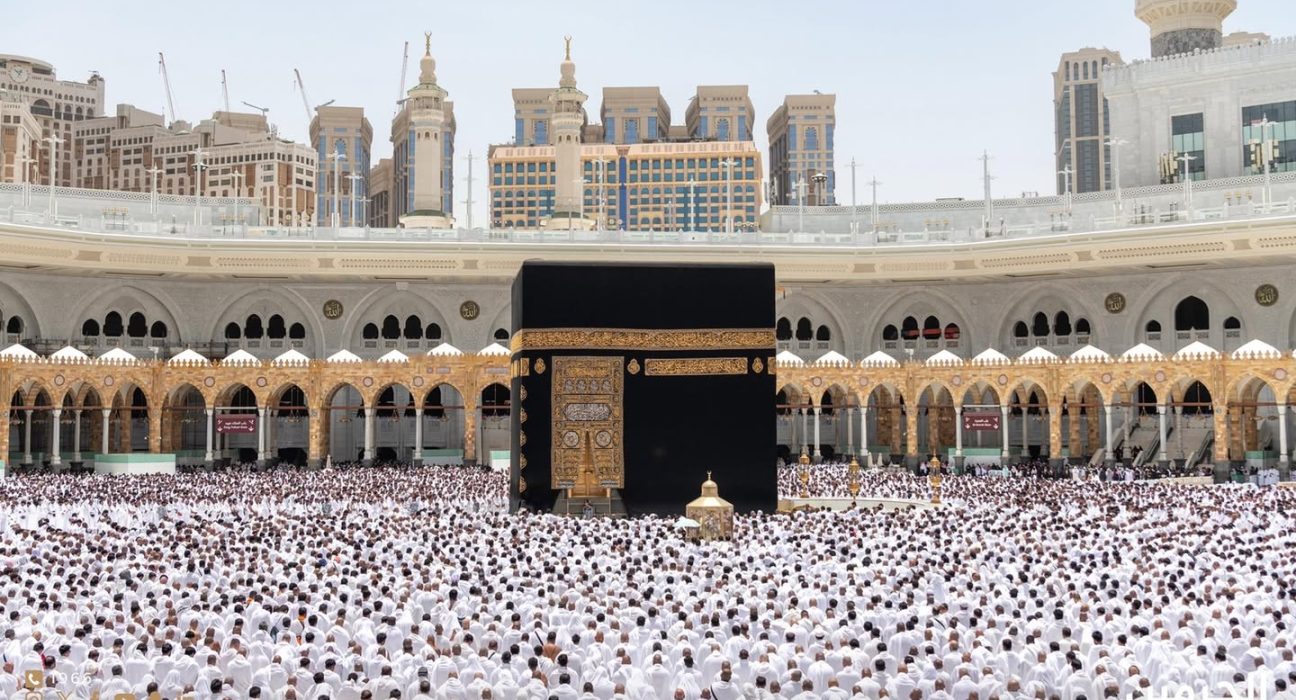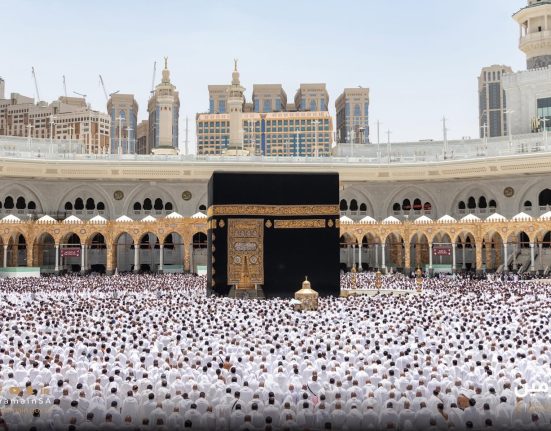Despite the sweltering heat in Makkah on Friday, thousands of Muslim pilgrims gathered with unwavering devotion at the Grand Mosque, Masjid al-Haram, to observe the weekly Juma’at prayers under extreme weather conditions. With temperatures soaring above 40 degrees Celsius, the spiritual commitment of the faithful remained unshaken as they stood shoulder to shoulder in prayer within the sacred precincts of Islam’s holiest site.
The intense heat did little to deter worshippers, many of whom are either performing Umrah or are among those who extended their stay following the recently concluded 2025 Hajj pilgrimage. Clad in simple garments, with prayer mats and umbrellas in hand, the pilgrims sought shade where possible, while others endured the open sun to maintain their place in the revered mosque.
Health officials in the Kingdom had earlier issued heat advisories, urging worshippers to stay hydrated and avoid prolonged sun exposure, particularly during peak afternoon hours. However, the spiritual significance of the Friday congregational prayer drew multitudes, many of whom began arriving at the mosque hours before the call to prayer.
Saudi authorities, through the General Presidency for the Affairs of the Two Holy Mosques, have continued to deploy misting fans, cold water stations, and medical teams throughout the mosque complex to provide relief and ensure the safety of pilgrims amid rising temperatures. Emergency medical personnel were also seen attending to individuals showing signs of heat exhaustion and dehydration.
Masjid al-Haram remains a focal point of global Islamic devotion, and scenes such as these, where the faithful gather in unity despite physical hardship, underscore the deep spiritual connection millions around the world have to the Holy Kaaba. For many, enduring the physical discomfort of the heat is considered a form of sacrifice and a part of the greater act of worship.
As climate conditions across the Middle East become increasingly extreme during the summer months, pilgrims are encouraged to follow safety protocols, listen to official advisories, and make use of the services provided by the Saudi authorities to safeguard their well-being during acts of worship.

